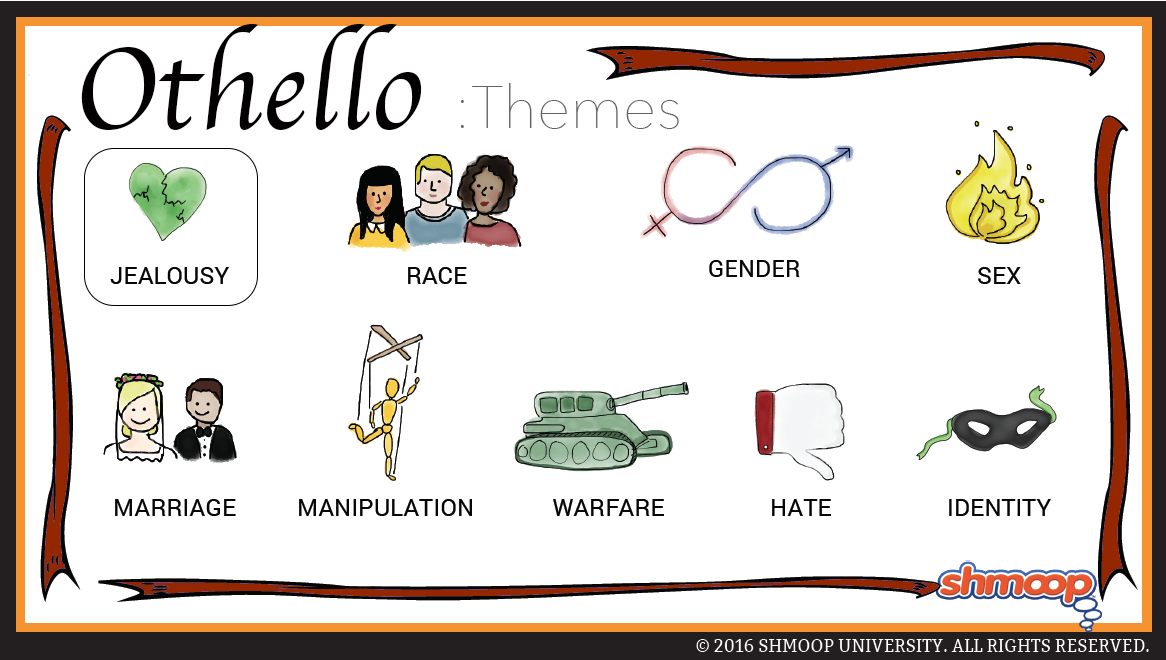 (Click the themes infographic to download.)
(Click the themes infographic to download.)
Othello is the most famous literary work that focuses on the dangers of jealousy. The play is a study of how jealousy can be fueled by mere circumstantial evidence and can destroy lives. (In Othello, the hero succumbs to jealousy when Iago convinces him that Desdemona has been an unfaithful wife – in the end, Othello murders his wife and then kills himself.) It is interesting that Iago uses jealousy against Othello, yet jealousy is likely the source of Iago's hatred in the first place. In Othello, jealousy takes many forms, from sexual suspicion to professional competition, but it is, in all cases, destructive.
Questions About Jealousy
- What language does Shakespeare use to describe jealousy in the play? Do different characters use different metaphors to describe jealousy, or are there common ways of talking about it?
- Do other characters besides Othello demonstrate jealousy? In what ways?
- Is jealousy portrayed as intrinsically unreasonable? Is there a kind of jealousy that is reasonable, or does the play suggest that all jealousy tends to "mock" the person who is jealous?
- Why is sexual jealousy the focus of the play, rather than a different kind of jealousy? What other kinds of jealousy are included in Othello? (If you're thinking of Iago's jealousy of Othello, keep in mind that this, too, could be sexual jealousy.)
Chew on This
The reason Iago chooses to hurt Othello by making him jealous is that Iago is consumed by jealousy himself.
In Othello, Shakespeare proves that jealousy is inherently unreasonable, as it is founded on the psychological issues of the jealous person, not on the behavior of the one who prompts the jealous feelings.